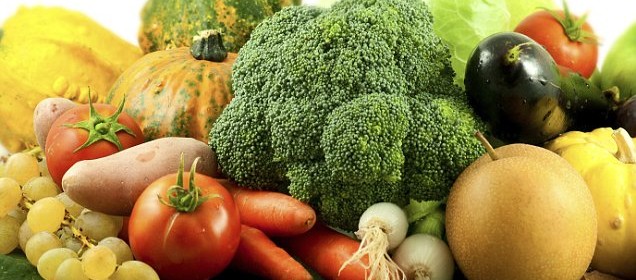Mediterranean diet fights off depression

A Mediterranean diet could be the answer to keeping depression at bay as well as heart disease, suggests new research.
The study, which monitored over 15k people, showed that a diet filled with fruit, vegetables, legumes, nuts and olive oil, along with low levels of processed meats, could prevent the onset of depression.
Researchers, whose findings were published in the journal BMC Medicine, observed the results of three major diets on mental health: the Pro-vegetarian Dietry Pattern; the Alternative Healthy Eating Index-2010 and the Mediterranean diet.
Meat, sweets and other sources of animal fats and trans and saturated fatty acids scored low, while nuts, fruits, veg and other sources of omega-4 fatty acids, vitamins and minerals, scored very high.
Ten years later, the participants were asked to complete a follow-up survey on their diets.
About 1,550 of the participants reported a clinical diagnosis of depression or had used antidepressant drugs since the study began.
The Alternative Healthy Eating Index-2010 was found to be the associated with the greatest reduction of the risk of depression, but most of its effect could be associated with the major elements of the Mediterranean Diet.
Scientists have concluded that common nutrients and food items such as omega-3 fatty acids, vegetables, fruits, beans, nuts and moderate alcohol intake present in both patterns could be responsible for cutting the risk of depression.
Author Dr Almudena Sanchez-Villegas, from the University of Las Palmas de Gran Canaria explained the thinking behind the study.
He said: ‘We wanted to understand what role nutrition plays in mental health, as we believe certain dietary patterns could protect our minds.
‘These diets are all associated with physical health benefits and now we find that they could have a positive effect on our mental health.
‘The protective role is credited to the foods’ nutritional properties, where nuts, legumes, fruits and vegetables, all sources of omega-3 fatty acids, vitamins and minerals, could reduce the risk of depression.’
Dr Sanchez-Villegas added: ‘A threshold effect may exist.
‘The noticeable difference occurs when participants start to follow a healthier diet.
‘Even a moderate adherence to these healthy dietary patterns was associated with an important reduction in the risk of developing depression.
‘However, we saw no additional benefit when participants showed high or even really high adherence to the diets.
‘So, once the threshold is reached, the reduced risk levels off even if participants were more strict with their diets and eating healthier than before.
‘This dose-response pattern is compatible with the theory that less-than-average intake of some nutrients may represent a risk factor for future depression.’

 Print
Print